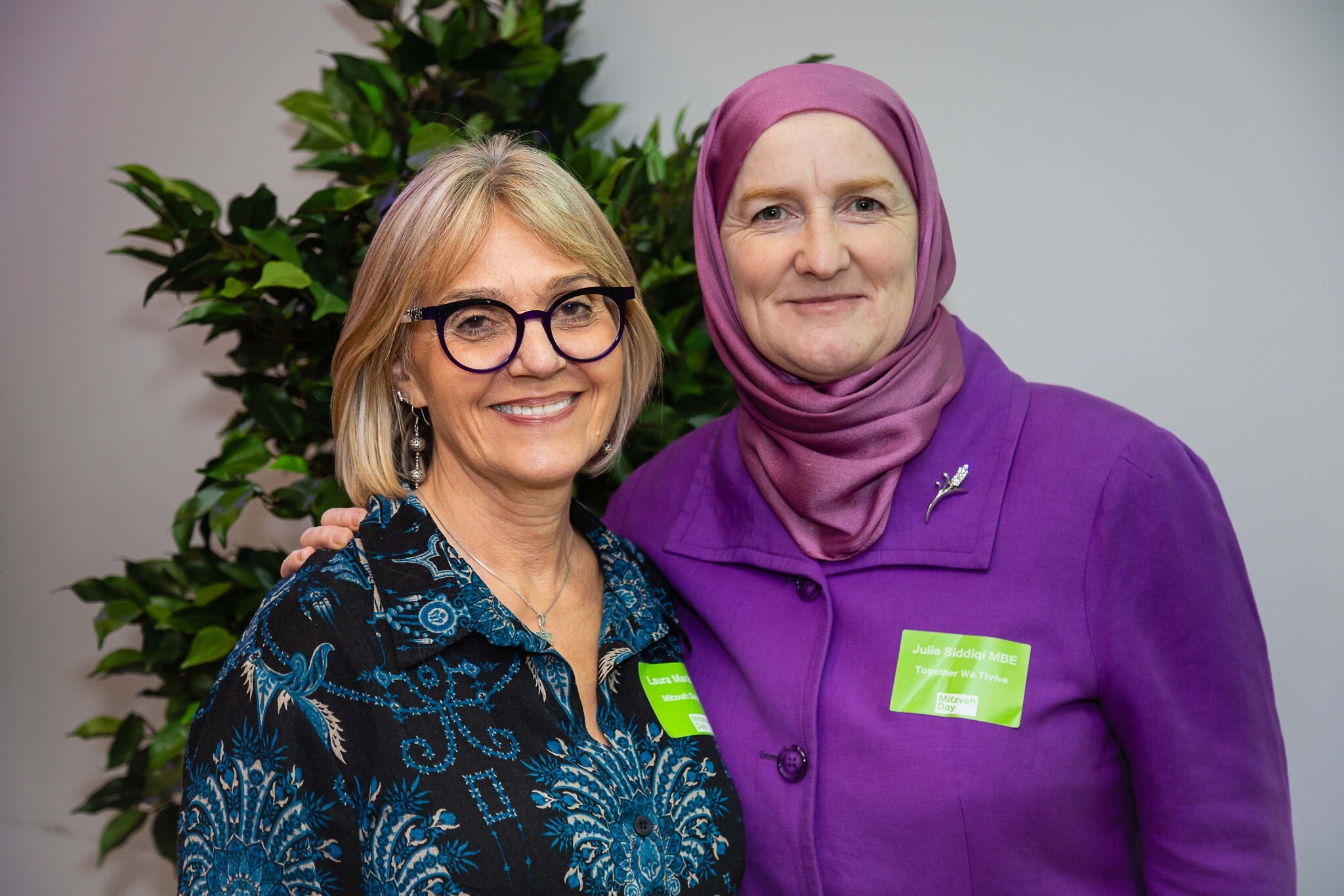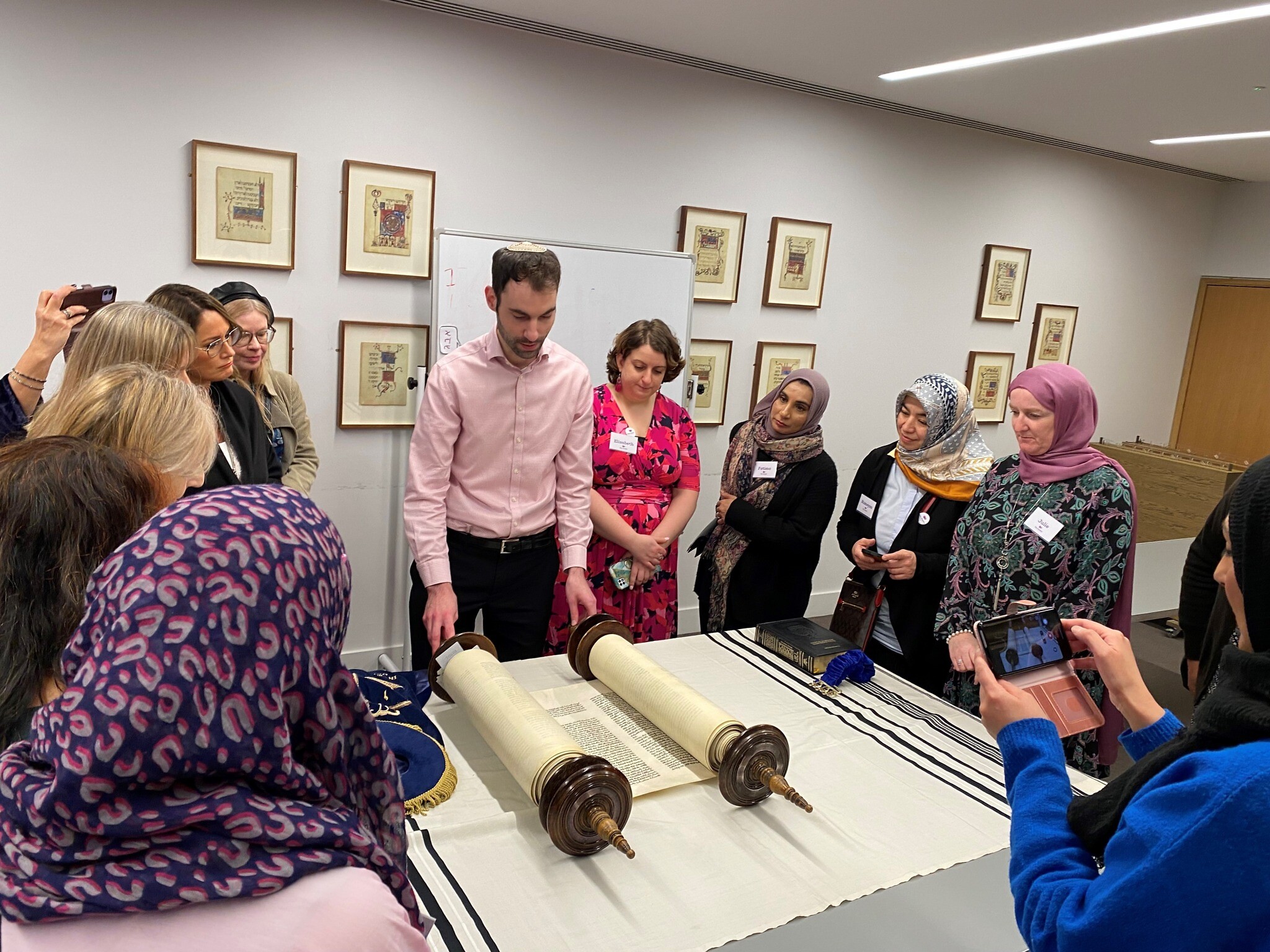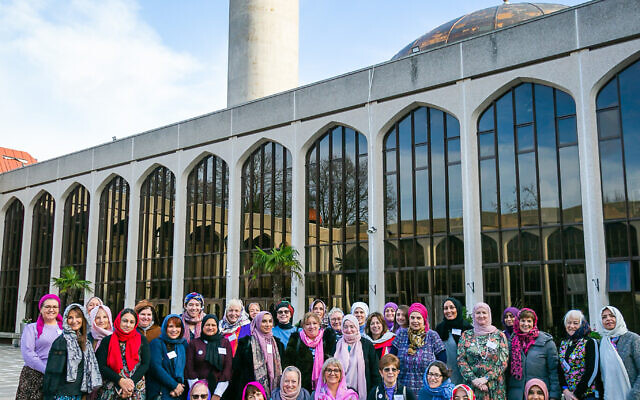OPINION: We can’t let connecting faiths fall victim to deliberate smears and fearmongering
'It's easy to mock interfaith work as sipping cups of tea and sharing samosas, but the truth is that it’s a long graft', writes Laura Marks, co-founder of Jewish-Muslim women network's Nisa-Nashim
With the tragic conflict continuing to rage in Israel and Palestine, threatening to tear communities here in the UK apart, it has never been more important to bring people of different faiths and beliefs together to build understanding.
However, in my 20 years of working in this space, I can safely say I have never seen such forceful efforts by people on different sides to willingly denigrate these initiatives quite so brazenly. The consequences, if their efforts are successful, should worry us all.
As the founder of the Jewish-Muslim women’s network Nisa-Nashim, I truly believe that we need more opportunities to meet people of different faiths – not less.
But I’ve been increasingly under attack from people who seem intent on driving ever deeper wedges between our communities – particularly between Jews and Muslims, but other faith and cultural communities too.
First, we have those who belittle what we do: it’s easy to paint “interfaith” work as naïve, idealistic or in some way fluffy. They say that we can’t possibly solve the big issues by listening and entering into dialogue. They say interfaith has ‘let us down’ and so should be abandoned. But what alternative are they are proposing? Do they really believe retreating to positions of polarised, shouty narratives is any less naïve when it comes to solving the big problems we face?

The evidence for building relationships between faith communities is compelling, academic and far from fluffy. As Dr Katherine Marshall of Georgetown University’s Berkley Center for Religion, Peace and World Affairs has written: “Interfaith knowledge can avert the social tensions that can lead to conflict and violence as well as political divides that detract from efforts to develop flourishing societies.”
Then, we have detractors who are set on discrediting people or organisations who associate with ‘undesirables’ – whatever that might mean. ‘Guilt by association’ has become the norm – in my own organisations I have seen this time and again, with my charities being scoured by people looking to find funders or connections their narrative finds unpalatable.

In reality, most major Jewish philanthropists support Israeli causes and most Muslim funders support Palestinian causes, making it easy for some to lay suspicion that they are in some way ‘hateful’. Of course, we must have red lines, all of us, but if we are to solve inter-community conflict and tension, we will need to reach outside our echo chambers and welcome people whose wider networks don’t always align with our own.
And at its most dangerous, there are those who are actively trying to undermine our efforts because it suits their extreme positions to whip up yet more distrust and ultimately intimidate people away from connecting with people who are different to themselves.
Despite the successes we have seen at Nisa-Nashim where our work is underpinned by friendships between Muslim and Jewish women, our members are too frequently under immense pressure from family and friends, as well as organisations with an agenda, to step away: they’re warned not to hang out with Muslim ‘extremists’ or Jewish ‘Zionists’. Put simply, they use intimidation tactics designed to break the limited chances we have to share, learn and reflect together.

All types of attack come from a position of fear. For many Jews (certainly not all), there is unfortunately already a level of mistrust and anxiety about engaging particularly with Muslim neighbours. For many Muslims (certainly not all), there is a fear of association with Jewish people – particularly if there is a perceived link to Israel – and therefore a worry about being stigmatised in turn.
It’s easy to mock interfaith work as sipping cups of tea and sharing samosas, but the truth is that it’s a long graft. To be frank, I don’t need more friends in my busy life – my social life isn’t in need of a boost. Building relationships with people I might only know from afar (Muslim, Christian, Sikh, Hindu or other) is hard work and time consuming, as well as endlessly joyful and fascinating.
But history shows us that only by putting in the hours over decades can we make a difference. Take Northern Ireland, where years of division and a lack of spaces to exchange with other groups gradually gave way to a better, more peaceful future. The peace process required the courage for people to deal with those who they might have deemed, for whatever reason, ‘unpalatable’. In this case, like with Nisa-Nashim, it was also characterised by a deep level of involvement by women. Those lessons are more valuable to us now than ever.
I am deeply worried about where this intimidation will lead. I know of many people in the interfaith space who have simply had enough of dealing with the constant pushback from all sides and are now tragically walking away from dialogue. Not only direct participants, but funders of our work who we rely on in an already precarious landscape (made one step worse with Iraninan intervention this week).
We need more people not less to come to the table. As we pass Easter and Ramadan and move through Eid rapidly to Vaisakhi and Passover, the opportunities to connect are endless. I’m a relentless optimist and, as I prepare for my interfaith Passover seder meal, I believe that change is in our own hands – indeed round our own dining room tables.
- Laura Marks is the co-founder of Nisa-Nashim, the UK’s Jewish and Muslim Women’s network. She founded Mitzvah Day – the UK’s largest faith-led day of social action, in 2005. Laura is Chair of Trustees for Holocaust Memorial Day Trust.

Thank you for helping to make Jewish News the leading source of news and opinion for the UK Jewish community. Today we're asking for your invaluable help to continue putting our community first in everything we do.
For as little as £5 a month you can help sustain the vital work we do in celebrating and standing up for Jewish life in Britain.
Jewish News holds our community together and keeps us connected. Like a synagogue, it’s where people turn to feel part of something bigger. It also proudly shows the rest of Britain the vibrancy and rich culture of modern Jewish life.
You can make a quick and easy one-off or monthly contribution of £5, £10, £20 or any other sum you’re comfortable with.
100% of your donation will help us continue celebrating our community, in all its dynamic diversity...
Engaging
Being a community platform means so much more than producing a newspaper and website. One of our proudest roles is media partnering with our invaluable charities to amplify the outstanding work they do to help us all.
Celebrating
There’s no shortage of oys in the world but Jewish News takes every opportunity to celebrate the joys too, through projects like Night of Heroes, 40 Under 40 and other compelling countdowns that make the community kvell with pride.
Pioneering
In the first collaboration between media outlets from different faiths, Jewish News worked with British Muslim TV and Church Times to produce a list of young activists leading the way on interfaith understanding.
Campaigning
Royal Mail issued a stamp honouring Holocaust hero Sir Nicholas Winton after a Jewish News campaign attracted more than 100,000 backers. Jewish Newsalso produces special editions of the paper highlighting pressing issues including mental health and Holocaust remembrance.
Easy access
In an age when news is readily accessible, Jewish News provides high-quality content free online and offline, removing any financial barriers to connecting people.
Voice of our community to wider society
The Jewish News team regularly appears on TV, radio and on the pages of the national press to comment on stories about the Jewish community. Easy access to the paper on the streets of London also means Jewish News provides an invaluable window into the community for the country at large.
We hope you agree all this is worth preserving.






















